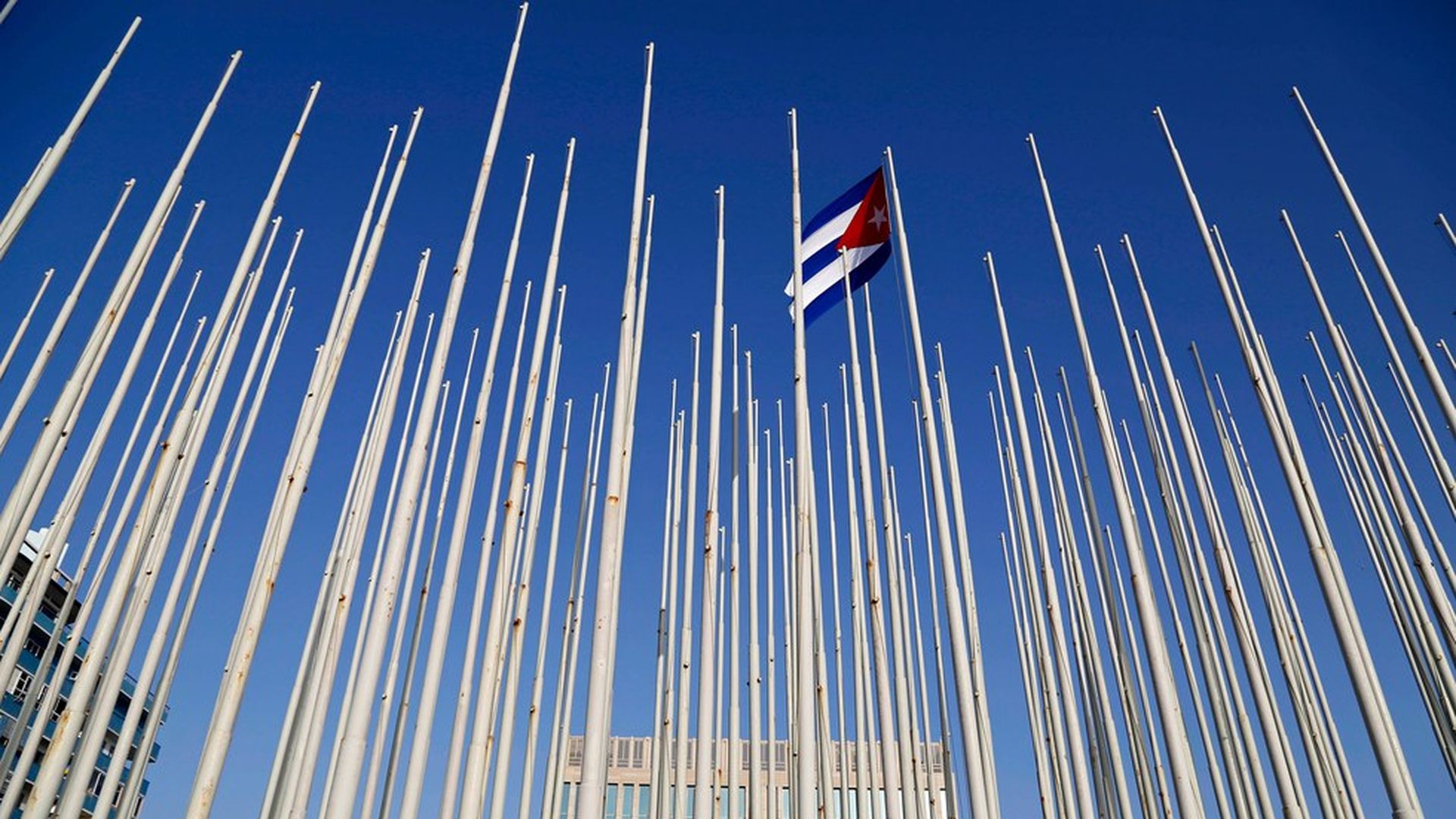Sep 29, 2017
U.S. to reduce Cuba embassy staff over health attacks
Add Axios as your preferred source to
see more of our stories on Google.

A Cuban flag flies in front of the now-renovated U.S. Embassy in Havana, Cuba. Photo: Desmond Boylan / AP
Add Axios as your preferred source to
see more of our stories on Google.

A Cuban flag flies in front of the now-renovated U.S. Embassy in Havana, Cuba. Photo: Desmond Boylan / AP